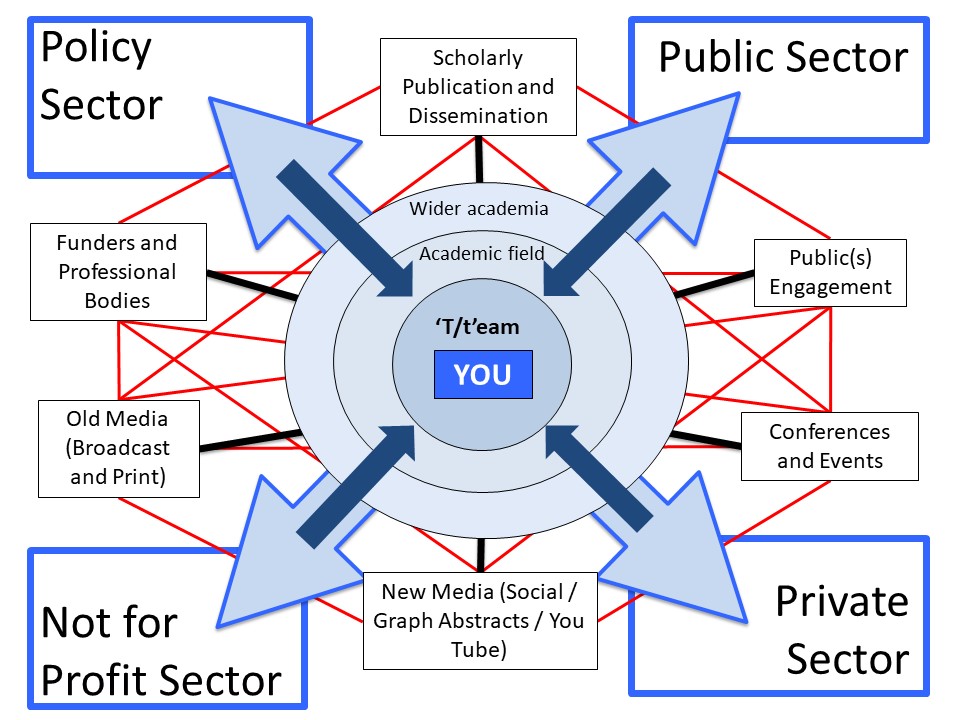‘Who’ affects ‘how’
Think about your career and research vision and strategy (the inputs, outputs and outcomes from the videos on ‘Being Strategic’). Make sure that the people you want to connect to are clearly linked to your outcomes. Your outcomes are what will hook them in and influence them to want to work with you. Who will it be most beneficial to connect with? Depending on who those people or organisations are, your approach and place of networking will be different:
 Image source: Dr Steve Hutchinson (www.hutchinsontraining.com)
Image source: Dr Steve Hutchinson (www.hutchinsontraining.com)
As we described in the Being Strategic video – begin with the end in mind, and work backwards. What’s the impact? Who can support you with that? Where do they look and hang out? Your local Public Engagement, Media and Communications, Knowledge Exchange and Policy colleagues can help you.
How do other PIs build their networks?
Everyone is different – some of us can’t bear the thought of networking, others relish the opportunity. Reframing the idea of networking to think of it as offering rather than taking something can help to motivate those who are reluctant. It is not about pretending to be something or someone that you are not – that is a sure way to undermine trust at the start of a relationship.
- Tip sheet - Quick-fire networking - 15 suggestions to build your network and enhance your visibility. Here we suggest a variety of ways that other PIs have found to develop their network. Some will appeal to you, some won’t. We challenge you to find at least three that you are not already doing AND that you would feel comfortable and authentic doing.
Audit your online profile
When was the last time you put your name in to a search engine? What did you find? Was it a true representation of who you are and what you offer, and is it clear why someone would choose to engage with you in the future? If a potential collaborator or employer were to research you online, what would they find?
If you are not too comfortable with your answers to these questions, then it’s probably time to get some feedback on how your profile is seen by others. It won’t take long and will be very worthwhile:
Steps for online audit
Ask two or three colleagues (who don’t know you very well) to audit your digital footprint. Offer to do the same for them.
Ask them to take just five minutes (people won’t look for long!) to ‘google’ you and look at a variety of websites or social media to find out, and form an opinion, about you and your research.
Ask them to feed back to you (perhaps via a short chat, coffee or video call) on:
- What they believe, purely from your online presence, are your key research themes
- What skills they believe you have
- What they think you might offer a potential stakeholder or collaborator who might want to work with you in the future
- One piece of advice they would give you to improve your online presence
Look at their feedback within the context of what you are trying to achieve with your social media profile. Is this what you expected? Does it reflect the key words, themes or values you identify with? Set some small goals and prioritise the ones you need to change now, then things to do later to improve your online presence.
In the interest of reciprocity and investing in others, offer to do the same for your colleagues – but ask them whether they would appreciate it first!
Previous and next
Go back to the previous section: Reviewing your networks
Go to the next section: Managing your collaboration teams